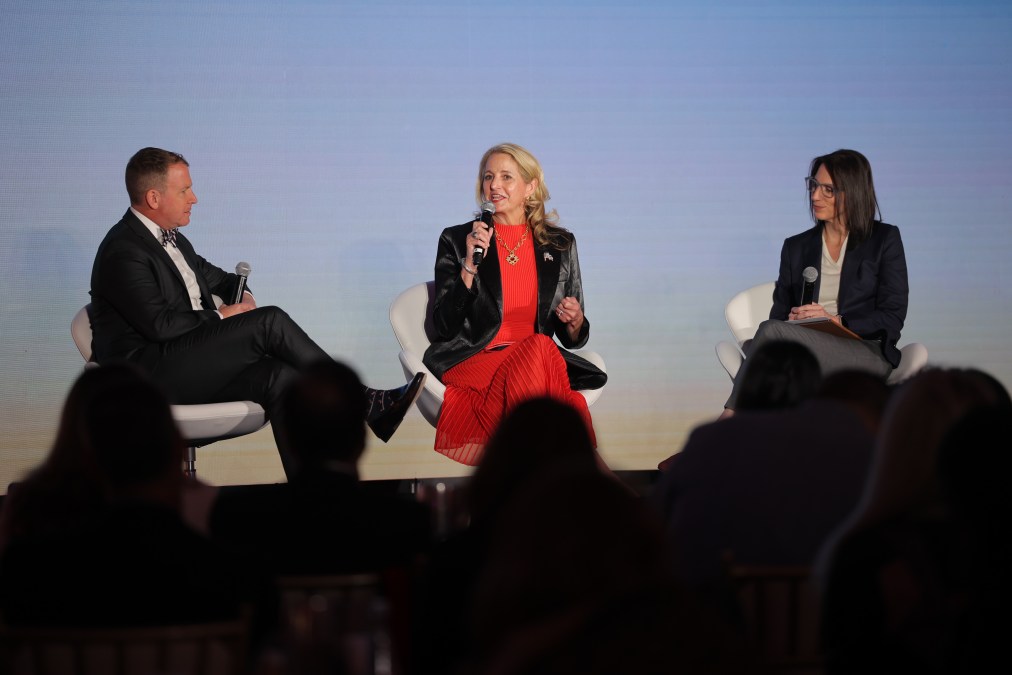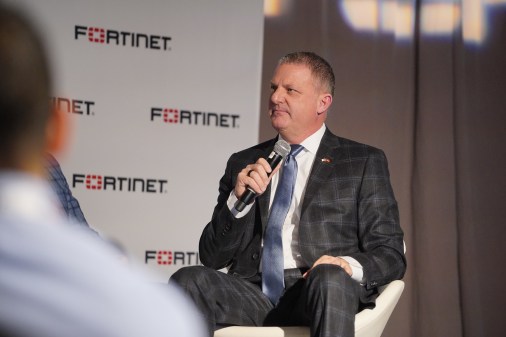Agency IT shouldn’t be siloed, former Trump federal CIO says

When Suzette Kent joined the first Trump White House in 2018 as its federal chief information officer, the former Ernst & Young, JPMorgan and Accenture executive was immediately hit with a cold dose of public-sector technological reality.
“One of the first things that happened was 300 pages of paper got plopped on my desk and someone said, ‘fill this out.’ What the hell is that? It made no sense,” Kent recalled Thursday during the Workday-sponsored FedScoop Federal Forum in Washington, D.C.
Much has changed since Kent left the government nearly five years ago, but that decidedly analog introduction to the executive branch has stuck with her, especially as the second Trump administration — and its tech priorities — takes shape.
Kent, who now runs her own advisory services firm, is on the outside looking in for this White House. But she believes there are some obvious things her federal IT successors should keep in mind as they digitize processes, embrace artificial intelligence and lean in on other emerging technologies to improve efficiencies.
One of the biggest questions Kent has, in hindsight, is why agencies pursue tech initiatives “in silos.” The federal government has “taken some baby steps” away from that approach, she said, but a greater shift by the Trump administration is something she’d like to see.
“We had some fallacies in how we approached it before, and that we tried to justify things down to the detailed level of every single agency and every single silo, instead of thinking like an enterprise,” Kent said. “The North Star is the enterprise — not like Star Trek, but thinking about it in that way. How do we do it holistically? That’s how we bring efficiency.”
Kent said that sort of holistic approach means agencies must double down on sharing capabilities across the federal government, making common investments and “not letting everybody chart their own course.”
Technology has advanced considerably over the past five years, she added, which means a siloed IT approach makes even less sense now. Federal shared services must be the default, but there is a danger in viewing them through “the wrong kind of paradigm.”
“The way that we even approach the concept of shared services and pay for them inside the government does not incentivize innovation,” Kent said. “We don’t really think about, what value am I getting? And how does this add to the things that I’m trying to do for my missions?”
Avoiding “stagnation” with those shared services is critical, she added, making it all the more important for government to have the right tech talent in place to be able to confidently “pull back some of the things that aren’t working.”
For Kent, it all ties back to those 300 pages of paper and how different a scenario like that might look in 2025 versus 2018. That’s certainly a place where AI comes into play; Kent’s start date as federal CIO was nearly three years before the Trump White House’s AI executive order was issued.
As the next four years unfold, agency IT leaders should be asking themselves not just how they make digital processes slightly better, but “how do we leap forward using strategic modern technology,” Kent said.
“We can move forward by taking the friction and the frustrating things out of the process. That’s the tactical stuff,” she said. “And we can move to … [having a] better connection to what’s going on across industry.”






